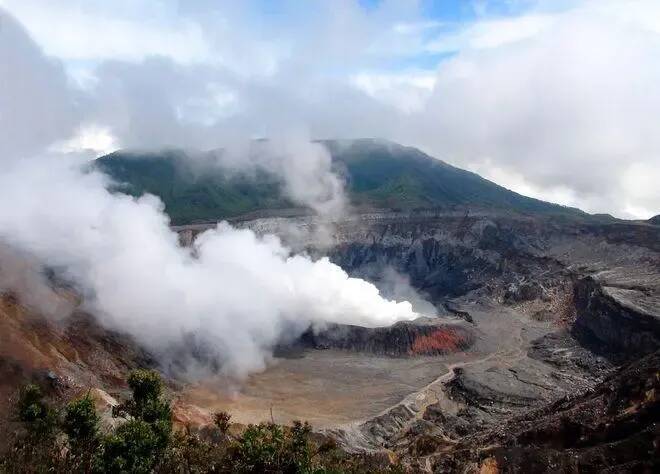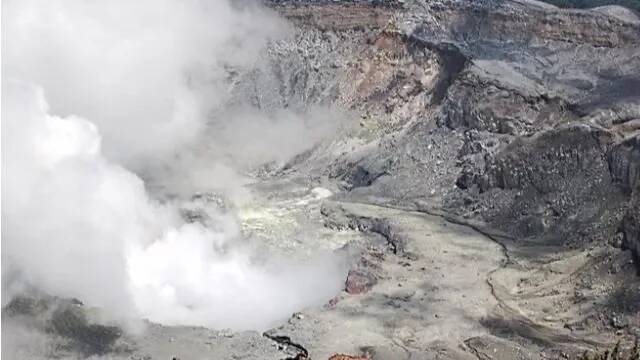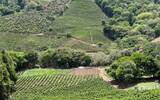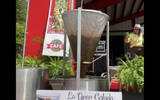Suddenly! Volcanic eruption in Costa Rica, ash affecting local people and agriculture
Recently, April 2, located in the Costa Rican capital San Jo, about 50 kilometers northwest of the Boas volcano (Poas) erupted, affecting the lives of local residents and the growth and production of coffee and other crops, but also led to the closure of the Boas Volcano National Park for two days.

It is understood that Costa Rica is a country with many volcanoes, the country has a total of more than 200 volcanoes, of which 6 are active volcanoes. Recently, one of the active volcanoes, the Poas volcano (Poas), experienced the largest volcanic eruption in nearly five years. The ash column reached 600,800m above the crater and was filled with ash. According to local reports, some pilots said they saw ash at an altitude of 10,000 feet (3048 meters).

Volcanologists at the Costa Rican Volcano and Seismological Observatory said that although there was no eruption of rocks or hot material this time, reducing casualties, the ash from the volcano could seriously affect the air quality nearby, causing harm to residents and crops. It is said that volcanic ash is irritating, excessive inhalation of the human body will lead to respiratory diseases, respiratory discomfort, nausea, headaches and other symptoms. And because the ash from the Boaz volcano is a small dry ash containing acid, it stays in the atmosphere for more time than the ash that contains water.
In addition, a large amount of volcanic ash and smoke enter the atmosphere, which will lead to air pollution, and these fine particles can be inhaled by plants such as crops, thus hindering photosynthesis and reducing crop productivity. Generally speaking, volcanic ash can increase the pH value of the soil, neutralize the acidity of the soil, and increase the vitality of the soil, but the volcanic ash of the Boaz volcano is acidic, which not only does not help, but also easily leads to soil loosening and wind erosion. cause soil erosion and soil erosion, and eventually affect crop yields. As the Boaz volcano is located in the middle of the country, a number of coffee producing areas in Costa Rica are also around the volcano, such as the famous Central Valley is located in the south of the volcano, many people in the coffee industry are worried about the impact of volcanic ash.
Due to the eruption of the volcano, there was a strong smell of sulfuric acid and ash in the province near the Boaz volcano, so the Costa Rican National Emergency Committee announced that nearby institutional counties and cities issued a warning and temporarily closed the Boaz volcano national park.
In addition, due to the influence of El Ni ñ o, Costa Rica is currently in a period of drought, with low rainfall and high temperatures. According to a recent report by the Costa Rican Fire Department, a total of 66 fires were recorded this year, 21 more than the same period last year. This affected 12400 hectares of land in Costa Rica, of which the fire destroyed 1400 hectares of land, causing great damage to people, animals and the environment, particularly in Guanacaster province.
With the occurrence of many fires, in addition to the effects of drought and high temperature, factors and behaviors such as burning chili peppers, poaching and reclaiming land with fire have also increased the risk of fire. in addition, due to the developed tourism industry in Costa Rica, bonfire activities carried out by many tourists during tourism also increased the risk of fire.
Although current production may be damaged by disasters, coffee and other industries and industries are still full of expectations for the future. Among them, Costa Rica is famous in the world because of its volcanic area, volcanic soil and high altitude cultivation. According to data released by the Central Bank of Costa Rica, bilateral trade in goods between Costa Rica and China exceeded US $4 billion for the first time in 2023, of which Costa Rica's exports to China totaled US $458 million, an increase of 17.5% over the same period last year. With the increasing demand in the Chinese coffee market, the export of coffee and other products will increase in the future.
Important Notice :
前街咖啡 FrontStreet Coffee has moved to new addredd:
FrontStreet Coffee Address: 315,Donghua East Road,GuangZhou
Tel:020 38364473
- Prev

Colombia coffee beans| Introduction to Kadura Coffee Beans
Coffee is grown in many countries on all continents, while in South America, coffee is grown in many countries, such as Ecuador, Peru and Colombia. Among them, Colombia coffee has a very high reputation in the global coffee market, and Colombia is the third largest coffee producer after Brazil and Vietnam. Colombia
- Next

Coffee? 4,800 cups at a time!
▲ Click attention| Coffee workshops in recent years, coffee festivals are increasing, and the most troublesome thing for visitors is probably the barista. Not to mention hundreds of people in front of the stall, if dozens of people lined up to drink coffee, the barista would be too busy to grow a few arms.
Related
- What grade does Jamaica Blue Mountain No. 1 coffee belong to and how to drink it better? What is the highest grade of Blue Mountain coffee for coffee aristocrats?
- What are the flavor characteristics of the world-famous coffee Blue Mountain No. 1 Golden Mantelin? What are the characteristics of deep-roasted bitter coffee?
- Can I make coffee a second time in an Italian hand-brewed mocha pot? Why can't coffee be brewed several times like tea leaves?
- Hand-brewed coffee flows with a knife and a tornado. How to brew it? What is the proportion of grinding water and water temperature divided into?
- What is the difference between Indonesian Sumatra Mantinin coffee and gold Mantinin? How to distinguish between real and fake golden Mantelin coffee?
- What does bypass mean in coffee? Why can hand-brewed coffee and water make it better?
- Unexpected! Ruixing Telunsu lattes use a smoothie machine to foam milk?!
- % Arabia's first store in Henan opens into the village?! Netizen: Thought it was P's
- Does an authentic standard mocha coffee recipe use chocolate sauce or powder? Mocha Latte/Dirty Coffee/Salty Mocha Coffee Recipe Share!
- What is the difference between Vietnam egg coffee and Norway egg coffee? Hand-brewed single product coffee filter paper filter cloth filter flat solution!

